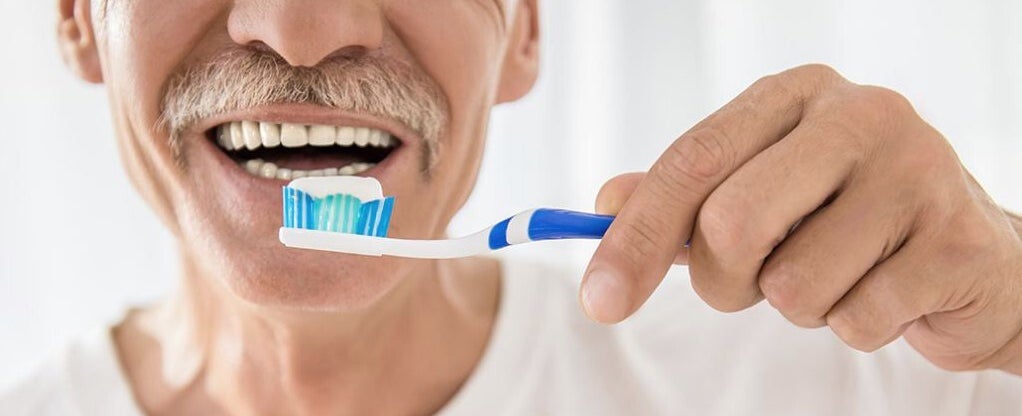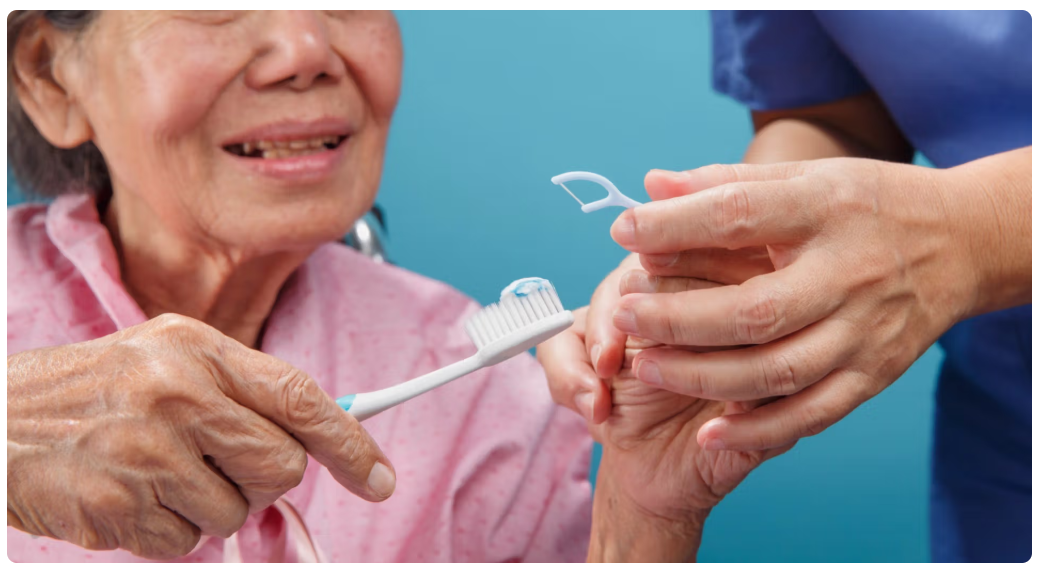About Us
We are Michele and Autumn, Bachelor of Applied Science in Dental Hygiene students. We are passionate about educating all patients on oral health, but particularly those in their later years. Through various educational tools, visual and physical aids, elderly folks will have a better understanding of how to take care of their oral cavity.

Why Oral Health Aids Are Important for the Elderly
As people age, they often face challenges that make oral hygiene more difficult, such as:
Reduced dexterity due to arthritis or neurological conditions
Cognitive decline (e.g., dementia, Alzheimer’s) which affects memory and routine
Dry mouth (xerostomia) due to medications
Gum recession, tooth loss, and dental prostheses like dentures or partials
Impaired vision, making it harder to clean properly

Common Oral Health Aids for the Elderly
1. Electric Toothbrushes
-
Easier to use for those with limited hand mobility.
-
Often have larger handles, timers, and pressure sensors.
-
Proven to be more effective at plaque removal compared to manual brushes.
2. Toothbrushes with Modified Handles
-
Built-up handles using foam grips or custom molds make them easier to hold.
-
Useful for patients with arthritis or tremors.
3. Floss Holders or Interdental Brushes
-
Pre-threaded flossers or floss holders simplify the flossing process.
-
Interdental brushes are ideal for patients with large gaps or dexterity issues.
4. Water Flossers (e.g., Waterpik)
-
Helpful for individuals with bridges, crowns, or dexterity limitations.
-
Can be easier than string floss and effective at reducing gingival inflammation.
5. Denture Care Products
-
Denture brushes and cleansers are essential for maintaining prosthetic hygiene.
-
Ultrasonic denture cleaners offer an effortless option for thorough cleaning.
-
Denture adhesive for stability and comfort, especially for those with resorbed ridges.
6. Saliva Substitutes and Moisturizers
-
Products like Biotène or mouth sprays help manage dry mouth caused by medication or systemic disease.
7. Antibacterial Rinses
-
Rinses with chlorhexidine or essential oils may be recommended for patients at high risk for periodontal disease.
-
Alcohol-free options are better for dry mouth.
8. Magnifying Mirrors and Adequate Lighting
-
Essential for self-care, especially if vision is impaired.
-
Some devices include built-in lights or magnification to improve visibility.
Keep Your Dental Appliances Clean and Comfortable
Candida albicans is the primary fungal species associated with denture stomatitis, affecting up to 65% of denture wearers.
Clinical Signs of Fungal Infection
-
Red, inflamed mucosa under the denture
-
Burning sensation
-
Angular cheilitis (cracks at the corners of the mouth)
-
Bad taste or odor from the prosthesis
-
Biofilm on denture surface that does not rinse off easily
Why Dentures Promote Fungal Growth
-
Dentures create a warm, moist, anaerobic environment ideal for Candida growth.
-
Acrylic resin is porous, allowing biofilm to penetrate and resist rinsing.
-
Continuous wear, especially overnight, significantly increases fungal colonization.
-
Poor hygiene, xerostomia, high-carb diets, smoking, diabetes, and poor prosthesis fit are major contributing factors.
Create Your Own Website With Webador